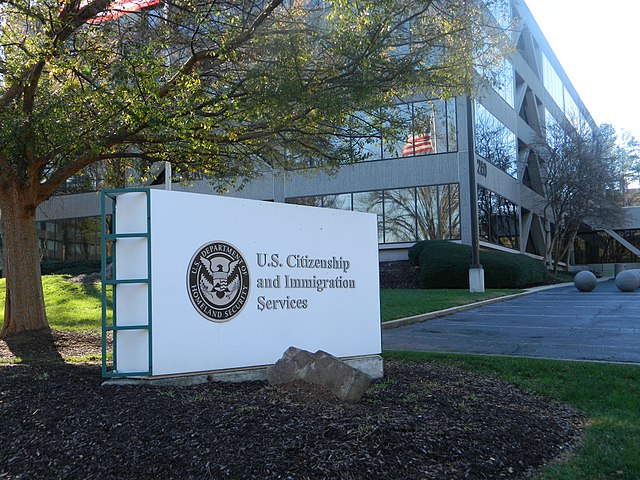

Temporary Protected Status (TPS) has provided lawful stay and work authorization to thousands of Honduran and Nicaraguan nationals in the U.S. since 1999. Originally granted following the catastrophic impact of Hurricane Mitch, this humanitarian program allowed individuals from these nations to rebuild their lives in safety.
On July 7, 2025, the Trump administration announced the termination of TPS for both countries, marking a significant shift in immigration policy. The decision affects approximately 76,000 individuals, many of whom have built families, careers, and deep community ties over more than two decades of lawful presence (Reuters).
The termination takes effect September 6, 2025, providing a short window for TPS holders to explore alternative legal options or prepare for departure.
DHS Justification: Why Was TPS Ended for Honduras and Nicaragua?
According to Homeland Security Secretary Kristi Noem, the administration concluded that conditions no longer meet the statutory requirements for TPS. DHS cited:
-
Improved Infrastructure: Roads, utilities, and essential services have seen restoration.
-
Economic Recovery: Increased foreign investment and tourism, especially in Honduras.
-
Government Stability: DHS contends that both countries are sufficiently stable for the safe return of their nationals.
As part of the termination announcement, DHS has offered voluntary return assistance, including airfare and a $1,000 stipend for those who depart by the effective date.
Risks, Humanitarian Concerns, and Criticisms
While DHS asserts that conditions have improved, many legal experts and human rights organizations warn of significant risks:
-
Nicaragua’s Political Climate: The authoritarian regime of President Daniel Ortega remains in place, with widespread reports of repression and political persecution.
-
Public Safety Concerns: Both countries still grapple with high crime rates and systemic poverty, fueling continued emigration.
-
Family Separation Risks: Many TPS holders have U.S.-born children or citizen spouses, leading to possible family separations.
-
Economic Disruption: TPS holders contribute significantly to industries such as construction, hospitality, and healthcare, particularly in states like Florida, New York, and California.
The decision has been met with legal challenges and congressional calls for permanent status solutions for long-term TPS holders.
Legal Context: Broader TPS Landscape and Court Challenges
The termination of TPS for Honduras and Nicaragua follows a broader effort by the Trump administration to roll back TPS protections for nationals from multiple countries:
-
Venezuela: TPS termination upheld by the U.S. Supreme Court in 2025.
-
Haiti: Termination blocked temporarily by a federal judge in New York.
-
Nepal, Cameroon, Afghanistan: TPS programs under active review.
Ongoing litigation and congressional debate mean the legal landscape is fluid. TPS holders must remain vigilant and prepared for rapid developments that may impact their status.
How Spar & Bernstein Can Help: Your Immigration Options After TPS
Our experienced attorneys at Spar & Bernstein are committed to guiding TPS holders through this uncertain period. We provide personalized, pro-active legal solutions tailored to your situation:
1. Adjustment of Status or Family-Based Petitions
Many TPS holders have U.S. citizen spouses, children over 21, or parents who can sponsor them for permanent residence. We handle:
-
Family-based green card applications
-
Adjustment of status filings (for those eligible to adjust inside the U.S.)
-
Waivers of inadmissibility when necessary
2. Asylum and Humanitarian Relief
If you fear persecution or harm upon returning to Honduras or Nicaragua, you may qualify for:
-
Affirmative asylum applications
-
Withholding of removal
-
Protection under the Convention Against Torture (CAT)
Our legal team builds strong, well-documented asylum claims, leveraging country condition reports and personal evidence.
3. Exploring Employment-Based and Other Legal Avenues
Depending on your employment history, education, or exceptional abilities, alternative visa categories may apply, such as:
-
Employment-based green cards (EB-2, EB-3)
-
U visas for crime victims
-
Special immigrant categories for certain workers or religious figures
4. Deportation Defense and Court Representation
If placed in removal proceedings after TPS termination:
-
We provide full legal defense in Immigration Court
-
Seek cancellation of removal or other relief
-
Challenge improper government actions where applicable
5. Timely Guidance on Litigation and Policy Updates
We monitor legal challenges and legislative efforts affecting TPS and:
-
Notify clients immediately of relevant changes
-
Adjust legal strategies to take advantage of new protections or opportunities
What You Should Do Now
The September 6, 2025, deadline is approaching fast. To protect yourself and your family:
- Schedule a consultation with Spar & Bernstein
- Gather documents proving your residence, employment, and family ties
- Explore all available legal pathways
- Act quickly to file necessary petitions or applications
- Stay informed on breaking legal and policy news
Our Commitment at Spar & Bernstein
At Spar & Bernstein, we understand that the end of TPS creates stress and uncertainty. With decades of experience helping immigrants navigate complex legal situations, we stand ready to assist.
Our mission is simple: provide practical legal solutions that protect your future in the United States. Whether through adjustment of status, asylum claims, family petitions, or deportation defense, our team is here for you.
Let us help you chart a secure, legal pathway forward. Call Spar & Bernstein now for a confidential consultation and protect your rights before the TPS deadline.




